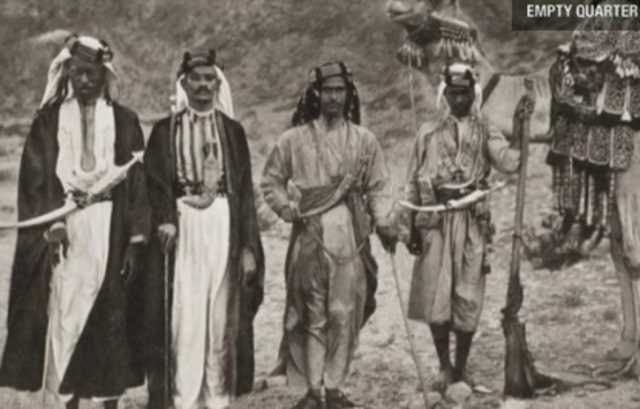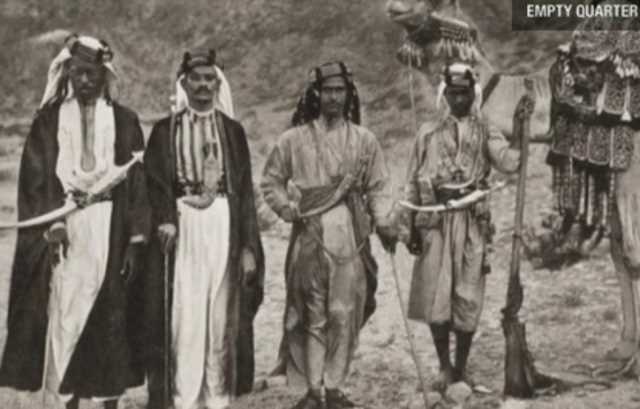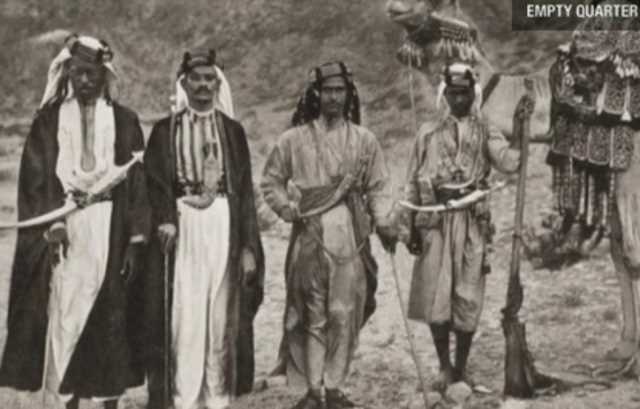The Battle of Hunayn is a significant event in Islamic history, showcasing the exemplary leadership and strategic prowess of Hazrat Ali, the fourth caliph and cousin of the Prophet Muhammad. This battle took place in the year 630 CE, shortly after the conquest of Mecca, when the Islamic forces faced a formidable challenge from a confederation of Bedouin tribes.
At the beginning of the conflict, the Muslim army was confident in their recent victories, but they soon found themselves outnumbered and caught off guard by a surprise attack. Many soldiers were taken aback and began to retreat, but Hazrat Ali, with his unwavering courage and determination, rallied the troops and reminded them of their faith and their mission.
With his masterful leadership, Hazrat Ali organized a counteroffensive, utilizing his expertise in combat and his deep understanding of tactics. He strategically placed his forces in key positions, blocking the enemy’s advances and inflicting heavy casualties. His effective use of archers and cavalry proved crucial in disrupting the enemy’s formations and turning the tide of the battle.
Despite the initial setback, Hazrat Ali’s leadership and unwavering commitment to the cause inspired the Muslim soldiers to fight with newfound zeal. His bravery and skill on the battlefield became evident as he personally led the charge against the enemy, showing no fear in the face of danger. Under his guidance, the Muslim forces emerged victorious, routing the confederation of tribes and establishing their dominance in the region.
The Battle of Hunayn stands as a testament to the exceptional leadership abilities of Hazrat Ali, his tactical acumen, and his unwavering faith. It serves as an inspiration for Muslims around the world, highlighting the importance of unity, courage, and determination in the face of adversity.
Historical Background and Context
The Battle of Hunayn took place in the year 630 CE, during the early years of Islam in the Arabian Peninsula. It was a significant event that showcased the leadership and bravery of Hazrat Ali, one of the closest companions and son-in-law of Prophet Muhammad.
Prior to the Battle of Hunayn, the Muslim community had recently emerged victorious in the Battle of Ahzab (the Battle of the Trench) against a coalition of tribes. This victory solidified the position of the Muslims in Medina and strengthened their influence in the region.
However, despite these recent successes, many tribes in the Arabian Peninsula still harbored animosity towards the Muslims and their new faith. The Battle of Hunayn arose from a conflict between the Muslims and a prominent tribe called Hawazin, who were known for their strong military capabilities.
The Hawazin tribe, led by Malik ibn Awf, held strategic control over the region and had amassed a large army. Sensing an opportunity to defeat the Muslims and regain their lost prestige, the Hawazin tribe launched an attack on the Muslim forces.
The Battle of Hunayn was fought in the valley of Hunayn, located near the city of Ta’if. The Muslim army, led by Prophet Muhammad and including Hazrat Ali, initially faced a setback as they were caught off guard by the sudden attack and were outnumbered by the Hawazin forces.
In the face of adversity, Hazrat Ali displayed exceptional leadership skills and rallied the Muslim troops. Under his command, the Muslims regrouped and launched a counteroffensive, turning the tide of the battle in their favor. Hazrat Ali’s valor and strategic acumen played a pivotal role in the eventual victory of the Muslims.
The Battle of Hunayn proved to be another milestone in the early history of Islam. It demonstrated the resilience and determination of the Muslim community in the face of formidable challenges. The victory also led to the conversion of many tribes in the region, further consolidating the influence and spread of Islam in Arabia.
Preparation and Strategy
Hazrat Ali, the beloved cousin and son-in-law of Prophet Muhammad, was known for his bravery, wisdom, and strategic thinking. As the leader of the Muslim army, he meticulously prepared for the Battle of Hunayn, ensuring that his forces were well-equipped and well-prepared for victory.
Before the battle, Hazrat Ali conducted thorough reconnaissance to gather information about the enemy’s strength, positioning, and tactics. This enabled him to formulate a comprehensive strategy that would maximize the chances of success.
One key aspect of Hazrat Ali’s preparation was the training and discipline of his troops. He organized rigorous training sessions to improve their combat skills and coordination. He also emphasized discipline and obedience to ensure that his soldiers would act as a united and coordinated force on the battlefield.
In terms of weaponry and equipment, Hazrat Ali made sure that his forces were adequately armed with swords, spears, shields, and other essential weapons. He also had an arsenal of archers who were skilled in long-range warfare.
Hazrat Ali’s strategy for the Battle of Hunayn was based on his understanding of the enemy’s weaknesses and his own strengths. He knew that the enemy, despite their large numbers, were overconfident and prone to desertion. He leveraged this by implementing a tactic that would exploit their weaknesses and disrupt their morale.
During the battle, Hazrat Ali deployed his forces in a way that would surprise and confuse the enemy. He used his archers for long-range attacks, disrupting the enemy formation and causing chaos among their ranks. He also strategically positioned his cavalry to execute flanking maneuvers, isolating and overwhelming specific enemy groups.
Another crucial aspect of Hazrat Ali’s strategy was his ability to inspire and motivate his troops. He emphasized faith, bravery, and devotion to the cause, reminding his soldiers of their duty to defend Islam and protect the Muslim community. This instilled a sense of determination and loyalty among his forces.
In conclusion, Hazrat Ali’s preparation and strategy for the Battle of Hunayn were key factors in his ultimate victory. His meticulous planning, training of troops, understanding of the enemy, and ability to adapt and innovate on the battlefield were instrumental in defeating the enemy and securing a significant triumph for the Muslim army.
The Battle Begins
The Battle of Hunayn, which took place in 630 AD, was a significant battle fought by Hazrat Ali and the Muslim army against the tribes of Hawazin and Thaqif who had united to oppose the Muslims in the aftermath of the conquest of Mecca.
The Muslim army, led by Hazrat Ali, marched towards the valley of Hunayn, which was known for its narrow and rocky terrain. As they entered the valley, they were ambushed by the enemy forces. The tribes of Hawazin and Thaqif had strategically positioned themselves on the high grounds and began to shower the Muslim army with arrows and spears, causing confusion and disarray among the ranks.
Despite the initial setback, Hazrat Ali displayed great leadership skills and quickly organized the Muslim soldiers. He urged them to stand firm and not be overwhelmed by the enemy’s attacks. Their faith in Hazrat Ali’s leadership gave them the motivation to fight back and regain control of the battle.
Hazrat Ali’s strategic thinking was evident as he ordered a tactical withdrawal, luring the enemy forces into the lower grounds of the valley. This move weakened the enemy’s advantage of being on higher ground and gave the Muslims an opportunity to counterattack.
With the enemy forces scattered and disoriented, the Muslim army launched a fierce assault. Hazrat Ali led the charge and fought valiantly, inspiring his soldiers to follow his lead. The Muslims overwhelmed the enemy forces and quickly turned the tide of the battle in their favor.
The battle continued for hours, with both sides fiercely fighting for control. However, Hazrat Ali’s leadership and strategic maneuvers proved to be decisive. Under his guidance, the Muslim army emerged victorious, scattering the tribes of Hawazin and Thaqif and claiming a significant triumph.
The Battle of Hunayn showcased Hazrat Ali’s exceptional leadership skills, his ability to remain calm and composed under pressure, and his strategic thinking. It was a testament to his bravery and determination, which earned him a revered status among the Muslim community.
Courage and Bravery of Hazrat Ali
Hazrat Ali demonstrated exceptional courage and bravery during the Battle of Hunayn. His unwavering determination and fearlessness in the face of adversity played a crucial role in the victory of the Muslims.
Despite being outnumbered by the enemy forces, Hazrat Ali fearlessly charged into the battlefield, leading his troops with remarkable bravery. He fought valiantly against the adversaries, inspiring his fellow soldiers to fight with equal courage.
His exceptional swordsmanship and combat skills were unmatched, as he slew numerous enemy soldiers in the midst of the fierce battle. His agility, strength, and unwavering resolve were instrumental in turning the tide of the battle in favor of the Muslims.
Hazrat Ali’s remarkable display of courage was not limited to his physical strength and skills on the battlefield. He also displayed immense mental fortitude and bravery by making strategic decisions that proved crucial in securing victory.
His leadership and ability to inspire his troops contributed to their morale, instilling a sense of courage and determination in them. He led by example, fearlessly facing the enemies and risking his own life for the sake of the mission.
Hazrat Ali’s bravery extended beyond the battlefield, as he was known for his unwavering commitment to justice and righteousness. He fearlessly spoke out against oppression and tyranny, standing up for what was right even in the face of adversity.
In conclusion, Hazrat Ali’s courage and bravery during the Battle of Hunayn were instrumental in securing victory for the Muslims. His physical strength, combat skills, and unwavering resolve, coupled with his excellent leadership and moral courage, set an example for generations to come.
Turning Point and Victory
The Battle of Hunayn was a crucial turning point in Hazrat Ali’s leadership and marked a significant victory for the Muslim army. Prior to this battle, the Muslim forces had recently conquered Mecca and the surrounding regions. However, many of the newly converted tribes still held deep animosity towards the Muslims and were not fully committed to their cause.
As the Muslim army approached Hunayn, they were met with a surprise attack from the enemy forces. The attackers used the element of surprise to their advantage, causing confusion and panic among the Muslim ranks. The Muslims initially found themselves in a difficult situation, with many soldiers retreating or becoming disoriented.
However, Hazrat Ali remained steadfast and displayed strong leadership skills. He gathered a group of the most loyal warriors around him and rallied them to fight back against the enemy. The presence and actions of Hazrat Ali inspired the other soldiers to regroup and reorganize their efforts.
Under Hazrat Ali’s direction, the Muslim army launched a counterattack that quickly turned the tide of the battle. The enemy forces were caught off guard by the resilience and determination of the Muslims. Many surrendered, while others were defeated in battle.
Hazrat Ali’s strategic thinking and bravery were instrumental in the victory at Hunayn. He anticipated the enemy’s tactics and devised a plan to counter them effectively. His decisive actions and unwavering courage inspired the Muslim soldiers to fight with renewed vigor.
The victory at Hunayn not only solidified Hazrat Ali’s reputation as a skilled and fearless leader but also served as a turning point in the consolidation of Muslim power in the region. The tribes that had previously been hesitant to support the Muslims now recognized the strength and resilience of the Muslim army under Hazrat Ali’s command.
Overall, the Battle of Hunayn showcased Hazrat Ali’s exceptional leadership abilities, which played a crucial role in the eventual victory of the Muslim forces. His strategic thinking, bravery, and ability to inspire his troops were key factors in turning the tide of the battle and establishing Muslim dominance in the region.
Lessons Learned
1. The importance of strategic planning: The Battle of Hunayn taught us the significance of thorough strategic planning before engaging in any conflict. Hazrat Ali’s meticulous planning and reconnaissance helped him anticipate the enemy’s movements and devise effective strategies to counter them.
2. The value of leadership and unity: Hazrat Ali’s exemplary leadership and his ability to unite and motivate his troops played a crucial role in their victory. This battle serves as a reminder of the tremendous impact a strong leader can have on a group of individuals working towards a common goal.
3. The power of faith and trust in Allah: The Battle of Hunayn also teaches us the importance of placing our faith and trust in Allah during challenging times. Hazrat Ali’s unwavering belief in the divine support and guidance helped him and his army overcome seemingly insurmountable odds.
4. The significance of adaptability and flexibility: Despite facing initial setbacks, Hazrat Ali quickly adapted his strategy and made necessary adjustments to turn the tide of the battle. This highlights the importance of being flexible and open to change in order to effectively respond to evolving situations.
5. The impact of effective communication: Clear and effective communication played a pivotal role in the Battle of Hunayn. Hazrat Ali’s ability to convey his plans and instructions to his troops ensured proper coordination and synchronization, resulting in their victory.
6. The importance of learning from past mistakes: The Battle of Hunayn also serves as a reminder of the significance of learning from past mistakes. Hazrat Ali drew upon the lessons learned from previous battles to formulate his strategy and avoid repeating the same errors that could have proven costly.
| Hazrat Ali | The Battle of Hunayn |
|---|---|
| “Do not let your difficulties fill you with anxiety; after all, it is only in the darkest nights that stars shine more brilliantly.” | Hazrat Ali’s leadership during the Battle of Hunayn demonstrated his unwavering resolve and ability to overcome adversities. |
Legacy of Hazrat Ali’s Leadership
Hazrat Ali’s leadership during the Battle of Hunayn left a lasting legacy that continues to inspire Muslims around the world today. His remarkable qualities as a leader, both on and off the battlefield, serve as a shining example of courage, wisdom, and selflessness.
One of the key aspects of Hazrat Ali’s leadership was his unwavering bravery in the face of adversity. Despite being outnumbered and facing a fierce enemy, he remained steadfast and led his troops with great determination. His courage served as a source of inspiration for his soldiers and helped them overcome the challenges they faced during the battle.
In addition to his bravery, Hazrat Ali also displayed exceptional wisdom and strategic thinking. He analyzed the battlefield and devised effective strategies to outmaneuver the enemy forces. His ability to assess the situation and make quick decisions played a crucial role in the victory of the Muslim army.
Hazrat Ali’s leadership was not limited to the battlefield; he also exhibited extraordinary qualities of compassion and justice. He treated his fellow soldiers with kindness and fairness, earning their respect and loyalty. His sense of justice ensured that all disputes and conflicts were resolved in a fair and equitable manner.
Furthermore, Hazrat Ali’s leadership extended beyond his military role. He was known for his piety, humility, and devotion to Islam. He actively promoted peace, unity, and social justice, and his teachings continue to be revered by Muslims worldwide.
The legacy of Hazrat Ali’s leadership serves as a guiding light for Muslims in their personal and professional lives. His example teaches the importance of integrity, courage, and compassion in leadership. His profound impact on the Muslim community is evident in the reverence and admiration he continues to receive even centuries after his passing.
In conclusion, Hazrat Ali’s leadership during the Battle of Hunayn left an indelible mark on history. His qualities as a leader, including bravery, wisdom, and justice, continue to inspire Muslims today. His legacy serves as a reminder of the importance of embodying these virtues in our own lives and in our leadership roles.
FAQ:
What was the Battle of Hunayn?
The Battle of Hunayn was a military conflict that took place in 630 AD in the Arabian Peninsula. It was fought between the Muslim army, led by Hazrat Ali, and the various tribes of Hawazin and Thaqif.
Who was Hazrat Ali and why was he chosen to lead the Muslim army in this battle?
Hazrat Ali was the cousin and son-in-law of the Prophet Muhammad. He was chosen to lead the Muslim army in the Battle of Hunayn because of his exceptional bravery, military skills, and leadership qualities.
What was the significance of the Battle of Hunayn?
The Battle of Hunayn was significant because it marked a crucial turning point in the early history of Islam. It solidified the position of the Muslims as a dominant power in the Arabian Peninsula and further expanded their influence in the region.
How did Hazrat Ali demonstrate his leadership during the Battle of Hunayn?
Hazrat Ali demonstrated his leadership during the Battle of Hunayn in various ways. He strategically deployed his forces, motivated his soldiers, and led the charge against the enemy. He also showed exceptional bravery and resilience, which inspired his troops to fight with utmost determination.
What were the main reasons for the victory of the Muslim army in the Battle of Hunayn?
The victory of the Muslim army in the Battle of Hunayn can be attributed to several factors. First, the leadership of Hazrat Ali played a crucial role in uniting and guiding the Muslim forces. Second, the superior military strategy and tactics employed by the Muslims gave them an advantage over their opponents. Finally, the support and blessings of Allah were believed to have favored the Muslims, granting them victory.


